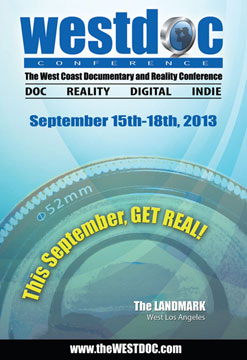
Should you make a horror film?
The month of October seems a good time to look at films in the horror genre and we will be releasing a series of posts all month long that addresses the business of releasing these films.
Long the domain of ultra low budget filmmakers everywhere, horror audiences are now spoiled for choice when it comes to finding a film that terrifies. Yes, everyone with access to a digital camera and buckets of fake blood seems to be honing their craft and turning out product by the thousands. Unfortunately, most of it is high on splatter and low on story and production value. That may have made up the majority of the horror film sales 7 years ago, but distribution advances paid for such films are now exceedingly low (maybe $5K per territory, IF there is a pick up at all) and now the genre is perfect for the torrent sites.Unless you plan to make films as an expensive hobby, the pressure to produce a stellar horror film that people will talk about (see The Conjuring, Insidious, Paranormal Activity) is very high.
The trouble for filmmakers creating in this genre is there is so much being made of questionable quality, it is like asking audiences to find a needle…in a stack of needles (hat tip to Drew Daywalt). The same challenges for fundraising, marketing, and distribution that plague every production, plague horror films as well. To get good word of mouth, the film HAS to be great and have a significant marketing push.
At a recent event hosted at the LA Film School by Screen Craft entitled Horror Filmmaking: The Guts of the Craft, several involved in the horror genre talked about budgeting and distributing indie horror films. All agreed the production value bar has to be raised so much higher than everything else in the market in order to get people to part with their money for a ticket when competing with studio films. Talent manager Andrew Wilson of Zero Gravity Management pointed out that comments like the film did a lot with so little doesn’t hold water with audiences outside of the festival circuit. “You still need it to be good enough to get someone to come into a theater and pay $12…the guy who is going to pay $12 doesn’t care that you did a lot for a little bit of money. They want to see a film that is as good as the big Warner Bros release because they are paying the same amount of money to see it.” While you may be thinking, “I don’t need my film to play in a theater,” and that may be, the films seeing the most revenue in this genre are the ones that do.
The panel also addressed selling horror films into foreign territories. While horror does travel much better than American drama or comedy, there are horror films being made all over the world and some are much more innovative than their American counterparts. France, Japan and Korea were cited as countries producing fantastically creative horror films. American filmmakers with aspirations of distributing their films overseas need to be aware of the competition not just with fellow countrymen, but with foreign talent as well.
Other film distributors are candidly talking about the complete decimation of the market for horror, largely brought on by the internet and piracy, but also a change in consumer habits. Why buy a copy to own of that low grade splatterfest when you can easily stream it (for pay or not) and move on to the next one? More where that came from. There was once big money in fooling audiences to buy a $20 DVD with a good slasher poster and trailer, but now they are wise to the junk vying for their attention and don’t see the need to pay much money for it.
In a talk given last year at the Spooky Empire’s Ultimate Horror Weekend in Orlando, sales agent/distributor Stephen Biro of Unearthed Films actually warned the audience of filmmakers not to get into horror if money was what they were seeking.”The whole system is rigged for the distributors and retailers. You will have to make the movie of a lifetime, something that will stand the test of time.” He confirmed DVD for horror is dead. Titles that might have shipped 10, 000 copies to retailers are now only shipping maybe 2,000. Some stores will only take 40 copies, see how they sell and order more if needed in order to cut down on dealing with returns. Of the big box stores left standing, few are interested in low budget horror titles. Netflix too is stepping away from low budget indie horror on the DVD side. They may offer distributors a 2 year streaming deal for six titles at $24,000 total, but there will be a cost to get them QC’d properly (which comes out of your cut, after the middlemen take their share of course!).
As for iTunes, there are standards barring graphic sex for films in the US and in some countries, they are now requiring a rating from the local ratings authority in order to sell from the iTunes Movie store. The cost of this can run into the thousands (based on run time) per country. Also, subtitling will be required for English language films, another cost.
The major companies in cable VOD (Comcast, Time Warner, Verizon etc) are now requiring a significant theatrical release (about 15 cities) before showing interest in working with a title. They are predominantly interested in titles with significant marketing effort behind them. The cable operators often do not offer advances and you must go through an aggregator like Gravitas Ventures to access. If the aggregator refuses your film, that’s it.
Selling from your own site via DVD or digital through Vimeo or Distrify is still an option, and the cut of revenue is certainly larger. But unless there is a budget and plan in place to market the site, traffic won’t just materialize. Still, for ultra, ultra low budget films (like made for less than $5,000) with a clear marketing strategy and small advertising budget, selling direct is the way to go. Certainly better than giving all rights away for free, for 7 years and seeing nothing. At least your film can access a global audience.
Here is Biro’s talk from Orlando. It runs almost an hour
If after reading this, you are still set to wade into the market with your horror film, stay tuned to future posts looking at the numbers behind some recent horror films and what options you’ll have on the festival circuit.
photo credit: <a href=”http://www.flickr.com/photos/markybon/102406173/”>MarkyBon</a> via <a href=”http://photopin.com”>photopin</a> <a href=”http://creativecommons.org/licenses/by-nc-sa/2.0/”>cc</a>
Sheri Candler October 3rd, 2013
Posted In: Cable, Digital Distribution, Distribution, International Sales, iTunes, Long Tail & Glut of Content, Marketing, Netflix, Theatrical
Tags: Andrew Wilson, cable VOD, Distrify, Guts of the Craft, horror films, independent film distribution, iTunes, LA Film School, Netflix, Screen Craft, Spooky Empire's Ultimate Horror Weekend, Stephen Biro, Unearthed Films, Vimeo, Warner Bros, Zero Gravity Management
TIFF RIFF Part One-The Numbers, Advice, and Excitement
Toronto International Film Festival (TIFF) starts this week and I will be there for almost the entire festival where I anticipate seeing 45-50 films before I depart. TIFF is not a film festival; it is a giant marathon that is almost beyond comprehension. If you believe that more is better, then this is the place to be. Think of TIFF as an 11 course film meal anchored by spam on steroids!
Last year’s festival had 289 features (More than Sundance and SXSW combined!). Of these films, just over ½ (146) were world premieres. Less than 60% of total films at the festival, as well as fewer than 60% of world premieres, have managed to secure US distribution as of this writing. It’s important to note that the films at the fest came from 72 different countries and certain locales (USA, Israel) fared much better than others (All of Africa). Given that this is a major international festival, several films were able to secure international territories even if US distribution proved elusive.
Part of what makes the festival so large is the presence of studio films that take up a lot of the press, along with several North American Premieres from Cannes (36), Venice (16), and Locarno (9). Combined these films make up over 20% of the festival. 41 films or a little over 14% from the 2012 festival grossed over $1,000,000 theatrically in the States. While the number of films in total is quite impressive, the percentage puts it right in line with last year’s Sundance crop. Of these films, ½ a dozen were studio releases and really don’t belong in the total. Another ½ dozen premiered at Cannes, Berlin, or Sundance.
The world premieres fared slightly better with 16% surpassing the same benchmark. But if the studio films were removed from the equation, they drop to 13%, and of those, slightly more than half came to the fest with distribution attached.
So, why all the boring and headache inducing number? I think that with its start of the Oscar campaign season and studio gems, the festival often gets a distorted reputation. While it’s a great place to be if you’re a star driven vehicle, the reality is that there is an entire Sundance film festival worth of films that have yet to get distribution in the States!
The festival has a much larger international presence and many of these films have since been released in upwards of two dozen countries, even with the largest film market never coming into play. While the vast majority of these films are foreign and many are from countries that don’t have sizable diaspora populations in the States, several English language films still are struggling to find a way to release. “Detroit Unleaded” is the perfect example. It’s one of the few American films to be left behind, even though it won an award at the festival. Of course with over 4,000 submissions, the odds are still stacked against you getting into the people’s festival.
I want to talk about the two real problems of TIFF. One is easily fixable and the other is not.
First, nobody at TIFF is thinking outside the box when it comes to distribution. Almost all of the films were traditional acquisitions (“Much Ado About Nothing”) or self-funded DIY vanity projects (Snoop Dogg’s “Reincarnated”). Percentage wise, more films from Tribeca and SXSW will see the light of the day because they had a plan B or C. They were open to DIY or non-theatrical distribution. For everyone who is going to TIFF, PLEASE, PLEASE, PLEASE don’t wait for that giant offer to come, because unless your film stars Ryan Gosling or has been deemed Oscar bait, the major payoff isn’t going to happen. Similarly, the festival is in September and there are no major US festivals till January. So you should already have your US premiere strategy thought out to help compensate for the months and months where you will not be able to generate press.
The other problem is simply the gluttony of films competing for attention. TIFF is simply not going to show fewer films. I wish they would consider it, so that movies playing can get more attention, or just cut all but one or two studio films from their roster. Since the gluttony of choices gives them major revenue and prestige, that is unlikely to happen. If you’re going to TIFF, this means you MUST have a stellar publicist and be ready to talk to anybody and everybody that you can. Promote the hell out of your film. Without fail, almost all the American non-star driven indies that go are too slow to set up their social media operation. Toronto is only a small body of water away from the States and I encourage you to let the world know early and often about your film.
I personally LOVE TIFF. Last year I saw so many incredible films there, and I’m not just talking about Oscar darling “Argo”. There were so many mind-blowingly wonderful films I stumbled upon, some of which have distribution and one film that hasn’t even screened in the States yet.
I look forward to discovering more of the hidden gems this year at the festival and am happy to meet with any filmmakers to discuss how to connect their wondrous visions with audiences around the world.
STAY TUNED FOR PART 2 will look at how specific films performed
Bryan Glick September 3rd, 2013
Posted In: Film Festivals, International Sales
Tags: Bryan Glick, film distribution, Film Festivals, film sales, TIFF, Toronto International Film Festival
International broadcast sales for documentary and WESTDOC Conference
A interview with the West Coast Documentary and Reality Conference (WESTDOC) Co Founder Richard Propper. Mr. Propper is also CEO and Director, International Licensing and Acquisitions at Solid Entertainment, a sales agency specializing in documentary films.
TFC: How long have you been doing international sales and with which entities and films?
RP: “I have been licensing non-fiction programming for 19 years. It wasn’t something I fell into, I had a great desire to combine the entertainment industry and international business – and I’m a current affairs and history junkie. Having completed film school and working for a small studio for years in post production, I saw a vast number of filmmakers with great documentary films, but no knowledge of what to do next. I wanted to be the first call for filmmakers when they thought about international sales.”
“Solid Entertainment has been successfully licensing programs worldwide for almost two decades via such broadcasters as: Animal Planet, ARTE, BBC , BBC2, BBC Horizon, BSkyB, Channel 4, Canal+, The Discovery Channels (worldwide), France 2/3, France 5, HBO, History Channel, M6, NBC, NHK, NOS-EO, National Geographic Channels(worldwide), Odyssee, ORF, Orbit, Planete, Premiere, Showtime, STAR Entertainment Channel, SPIEGEL TV, STERN-TV, SBS6, SF-DRS, TaurusFilm, The Travel Channel, TSR, TV Ontario, RAI, RTI, RTP, REAL-TV, VTM, ZDF.”
“At Solid Entertainment, our deal terms are pretty standard. A flat rate of 30%. No deduction for expenses. 3 year exclusive term of representation.”
TFC: What trends do you see on sales side for documentaries? Please be specific in terms of territories, rights, prices, types of films that perform v not etc.
RP: “They love (insert doc subject here) in Japan!” – Every new filmmaker I’ve ever met. – Richard Propper
“I’m going to throw a bucket of cold water on many peoples perceptions of the international broadcast marketplace. In many ways, its tougher now than ever before. There’s a huge oversupply of programs. Technology has worked wonders for the creation of content, leading to more of it. The non-fiction broadcast marketplace has been impacted by Reality TV. Channels need ratings and they have only so many hours they can license and co-produce. The line has blurred between documentaries and reality, so channels gradually began to license more and more Reality. Most territories in Europe still license good documentaries, but license fees have been declining for a few years. Asia and Latin America continue to pay modestly. Larger US broadcasters now want all rights deals. It didn’t use to be that way, a producer could count on the international rights as his/her “back end monies.” Not anymore.”
“Today, we see around $8,000 for an hour in Germany. We used to see $20,000. France, about $7,500 and it used to be $15,000. The UK – as high as $80,000, now $25,000. Generally, all the digital, free follow along rights go with the license fee. Pay VOD is still retained by the producer. We’ve had to sell more content overall and look harder for the opportunities.”
“Uniquely, American programs don’t do very well in the international marketplace. World history, nature and wildlife, buried treasure stories, science and technology stories all do well. American social issues or narrow political issues are a much harder sale. When was the last time you saw a great Italian documentary? You haven’t. Americans think our programs should sell everywhere, but we don’t reciprocate by programming other countries films on our networks. The international marketplace looks for programs that are somehow universal. It’s an art, not a science in producing programs that are attractive to the worldwide audience. I will say that some buyers recognize a well told story, others don’t. If it’s all talking heads or about some strange subculture – it won’t sell. We look at everything that comes into our office for representation – there are always surprises. If you haven’t captured the audience within the first 10 minutes, its likely the buyers aren’t going to stick around either.”
“Running times are important. If your dream is to make a feature doc, then try to come in at 75 – 100 minutes. Have a 50 minute cut-down planned for the broadcast one-hour slots. 90% of the world broadcast slots are one-hour. If there’s only a feature version, it has to compete with every Academy nominated doc or Morgan Spurlock’s or Michael Moore’s latest feature. It a very hard road if you’re not prepared. But it’s not all bad news.”
“The digital marketplace is starting to come into its own. While broadcast is challenging, there is a long tail strategy with digital – it just needs a little more time to stand on its own two legs. It takes strategy to get a good film released onto multi-platforms and various times. These strategies are being pioneered now. That is exciting. A larger audience for many films is out there, and technically there’s a way to deliver it. You just have to find and engage that audience.”
TFC: Explain the DVD landscape.
RP: “While the general focus, and rightly so, has been on VOD and a la carte program sales, I’ve found in the last year some DVD distributors who are looking for content. Keep in mind that there’s still a huge population of people who have this machine connected to their TV that provides supplemental content. We’ve had good luck getting a 4 part limited series and larger multi-episode series into Costco and Target. It’s short term sales, but its also unexpected revenue stream. VOD and a la carte programming is great, but it requires working with the right groups to get your content out there. While filmmakers are waiting for the magic formula to distribute digitally, DVD still has a place. It’s going away, but not as quickly as you might think.”
TFC: What is WESTDOC and why should filmmakers attend?
RP: “Over nearly 2 decades of traveling to television markets and film festivals, I realized that LA needed a substantial documentary conference of its own. One that wasn’t sponsor driven, nor a fortune to attend. Chuck Braverman is a friend and producer, who for years would run into me at various conferences and ask me why there wasn’t a decent conference in LA (I was President of IDA at the time) and proposed that we start one. I begged off for a time and then thought – why not? WESTDOC was born.”
“While there are some terrific conferences in other cities, LA really has this fractured creative community. Most filmmakers belong to several organizations. But where are the conferences that bring in the decision makers? Here is a true story. I was at a conference in Cannes (MIP or MIPCOM) having a meeting with someone who worked 25 minutes away from my office. I had traveled 9,000 miles to meet her. How ridiculous. With WESTDOC we’re getting these decision makers out of their offices and into an event to connect with the LA creative community.”
“When Chuck and I first sat down, we selected the best pieces from IDFA, HOT DOCS, MIP, NATPE, and all the rest. When we were done with our mission statement and outline, we knew it would be a great conference. Luckily, between us we had really great contacts with filmmakers and broadcasters. To our surprise, everyone we asked to speak said they would show up! Looking back, just our keynote speakers are an impressive bunch; RJ Cutler, Thom Beers, Kirby Dick, Joel Berlinger. Not bad for an unknown conference! This year we have Rory Kennedy, Ondi Timoner, and Kelly Day. We have 25 panels that are in the wheelhouse of documentary, Reality, and Digital. In addition, this year we have The Sit-Down – 30 minute broadcaster overviews with 43+ different networks.”
The 2013 WESTDOC Conference will take place September 15-18 at the Landmark Theater in Los Angeles, CA. For a full schedule of speakers and activities, visit their website. TFC Members will receive a promotional code for a discounted ticket. Become a TFC Member today!
About Richard Propper:
Solid Entertainment Founder and President Richard Propper is the former President of the International Documentary Association (IDA), and executive producer of over thirty internationally broadcast documentary programs. Solid Entertainment is a broadcast distribution company and one of only a handful of US specialty companies which has consistently supplied non-fiction programming to networks worldwide with a particular emphasis in Western Europe. He has spoke as an authority on development, co-production agreements, and the intricacies international distribution at: MIPDOC, HOT DOCS, IFP, AFM, Silverdocs, Realscreen Summit, NATPE, IDA, UCLA, and USC. Richard is also the co-founder of WESTDOC: The West Coast Documentary and Reality Conference. WESTDOC is a three-day event that brings together preeminent producers, directors, writers, network executives, agents and distributors for insightful and unique seminars, as well as networking opportunities.
Orly Ravid August 29th, 2013
Posted In: Digital Distribution, Distribution, education, International Sales
Tags: documentary film, foreign sales, independent film, international broadcast sales, Orly Ravid, Richard Propper, Solid Entertainment, The Film Collaborative, WESTDOC
Homework before you sign a sales agent
Further to my last blog, here’s a little advice on working with sales agents. Before you sign with a sales agent, it is critical to do some homework to figure out whether the deals you could get with their help will be better than the ones you could get on your own.
-What films has this company sold? Are they similar to the kind of film you have? Do those films have the same assets (cast, budget level, festival pedigree, cause or interest based)?
-Where did they sell? Domestically or internationally? Only very large agencies have the ability to handle both and sometimes a large agency won’t be a good fit for smaller films. Bigger slate=less attention to go around. Bigger agencies tend to give preferential treatment to their bigger name clients so if you are just starting out or haven’t built up a strong name yet, don’t expect to get red carpet service.
-For what kind of prices? This may get cagey as many people in the film business don’t like to talk about other people’s deals (unless it is gossip of course!), but they should be able to give a realistic narrow range of what you can expect based on similar films they have sold.
-What are the terms? Query if the fee to the sales agent and recouped expenses are worth it or if you can just do the couple small deals directly…
-Was the revenue remitted to the filmmaker? Can the agent collect? You should want to know what percentages and recoupment will reduce your share of the sale as well as this agent’s track record for collecting from distributors and paying filmmakers. On this question, you’ll need to contact the filmmakers who have worked with the company and see if they did receive their advances and further revenue. We always recommend making sure that all rights terminate upon material delay of payment. Be specific and be clear so you are not stuck in a deal where you won’t be paid.
Agencies love to show off nice catalogs of films they represent, but a list of titles will not tell you the information you need to know if you want to make your money back or make it back for your investors.
If a sales agent or lawyer approaches you or you want to approach him or her to sell your film, drill into the details. Even on the LGBT front not all films are alike. Not all of them can do the same deals, or any deals at all. Not all have the same revenue stream potentials. Documentaries are different from narratives, for example. And of course this is true of other categories of films. One of the hardest for TFC to handle and one of the hardest to sell in general, especially out of a non-A-list festival, is a drama without name cast.
Working with a sales agent that is taking a 10% commission off of the sales she brings in doesn’t bother me. 10% is not a lot of money for an agent who brings in a six-figure advance, and most likely she will bring in less for the majority of independent films. But I am concerned about paying a producer’s rep a big up-front fee, as there are many bottom-feeding producer’s reps whose business model is only collecting the fee and offering little else. For a good one who offers invaluable advice in the early stage of production and whose contacts may indeed be useful, it could be worth paying for. It is easy enough to Google someone’s name and see the kinds of projects with which they have been associated. If the only sources citing their involvement belong to sites they run, be cautious about making upfront payments and giving an ownership stake in your work.
Let me end with saying any industry professionals reading this please, please share the types of films you are handling and the deals you are doing, be specific. We share our film slate and numbers and if you do too, filmmakers can make educated choices.
I think much of the time filmmakers will still want someone else to handle their distribution and may be happy to do deals even if there is no profit, if only to establish and develop their careers. But let them make that choice as informed filmmakers, not still clinging to the allure of the 1990’s.
Orly Ravid July 25th, 2013
Posted In: Distribution, International Sales
Tags: collection, film sales agents, independent film, Orly Ravid, Producer's reps, terms




